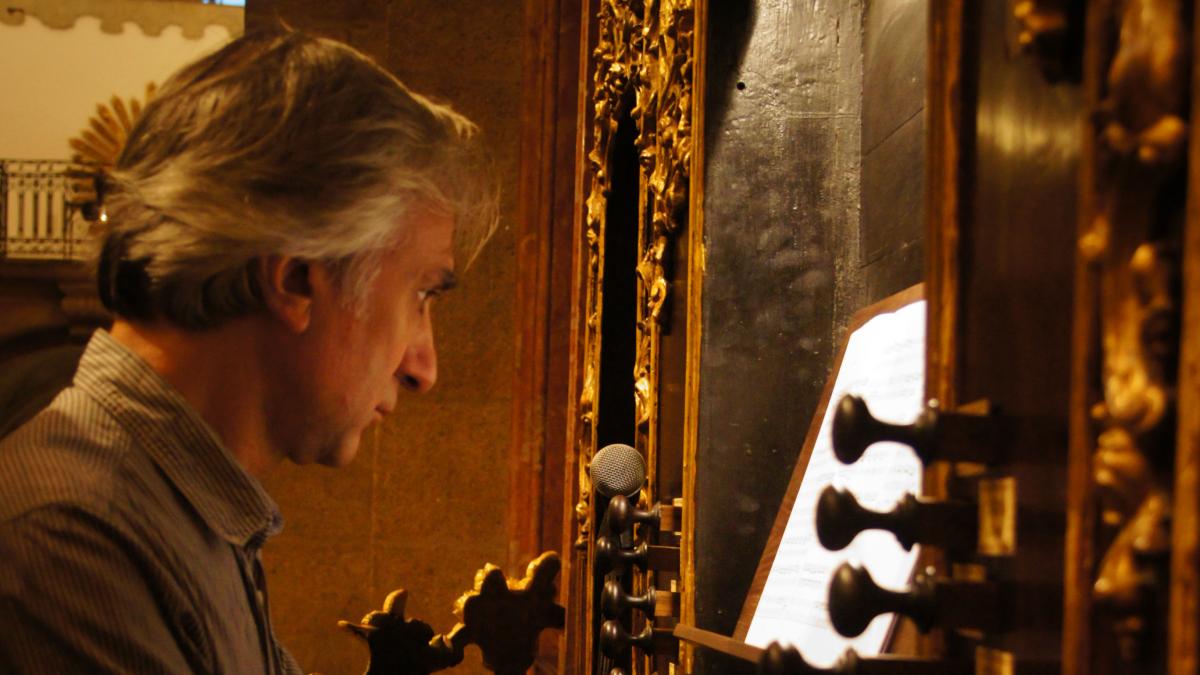Organist and pedagogue João Vaz: My role is to guide students towards their “emancipation” as an autonomous artist
“The quest for knowledge is inherent in the human condition. I have always found it exciting to be part of that process in the students’ life”, says internationally acclaimed Portuguese organist João Vaz who led a masterclass on organ music of the Iberian region for our church music students in November.

What motivates and inspires you to teach young church musicians at the Sibelius Academy of Uniarts Helsinki?
I have always believed that the quest for knowledge is inherent in the human condition. Having taught for most of my life, I have always found it exciting to be part of that process in the students’ life. In this case, it’s particularly inspiring to discuss Portuguese music – a rather peripheral subject in the context of organ teaching in Europe – with these young musicians.
What keywords would you use to describe your teaching pedagogy?
Trying to reduce a teaching pedagogy to a couple of words is a rather difficult – and dangerous – task, but I would risk “passion” and “discipline”. I try to awaken in the students the passion for the organ – this is obviously easier when you have access to beautiful instruments – and for the music. Then I try to encourage them to work as hard as the instruments and the music deserve.
What helped you find your own voice and place in the music world as a young musician?
Being myself. Above all I have always tried to avoid “copying” the options of other performers – no matter how much I liked them – and to pay attention to what the music and especially the instruments have to say.
Rather than talking about myself, I will use the words of the late French critic Xavier Bisaro in his review of one of my recordings: “Impervious to clichés, his interpretation returns to each work – the deepest as well as the most frantic – its raison d’être in relation to the instrument played”.
How do you see your role in supporting students’ individual artistic identities?
The ultimate role of a music school – especially on a higher level – is to form accomplished musicians. I like to see myself as someone who guides the student towards their “emancipation” as an autonomous artist.
What would you like your students to remember from this masterclass?
The organ, more than any other instrument, reflects the time of its construction as well as the region where it was built. Often, an organ shows signs of transformations that reflect the evolution of a society – musically and otherwise – throughout the centuries.
Portugal – either as part of the Iberian Peninsula or as an independent country – has its own history in the field of organ music, which is told by the music itself but also through the instruments. I hope that some of this may be remembered, not just as a novelty but as a part of the complex history of the European organ.
Who?
Born in Lisbon, João Vaz studied organ under Antoine Sibertin-Blanc in Lisbon and José Luis González Uriol in Zaragoza. He also worked with Edouard Souberbielle and Joaquim Simões da Hora, acquiring a strong interest in Early Music. He holds a doctorate in Music and Musicology, with a dissertation on the decline of Portuguese classical organ tradition in the mid-1800’s.
Having developed a worldwide career, he is often invited to play in prestigious organ festivals, as well as to teach in performance courses and to act as a jury member in international organ competitions. In 2016 he founded Capella Patriarchal, a group especially devoted to the performance of Portuguese sacred music. His interest in Portuguese organ music is reflected in his several CD recordings (most of them performed on Portuguese historic organs) and in his musicological work (articles and musical editions).
João Vaz holds the position of organ teacher at the Escola Superior de Música de Lisboa and at the University of Évora. He is also artistic director of the Madeira Organ Festival and of the concert series featuring the six organs of the Basilica of the National Palace of Mafra (for the restoration of which he was a permanent consultant) and of the historic organ of the Church of São Vicente de Fora in Lisbon, of which he became titular organist in 1997.
Source of the biography: João Vaz’s homepage